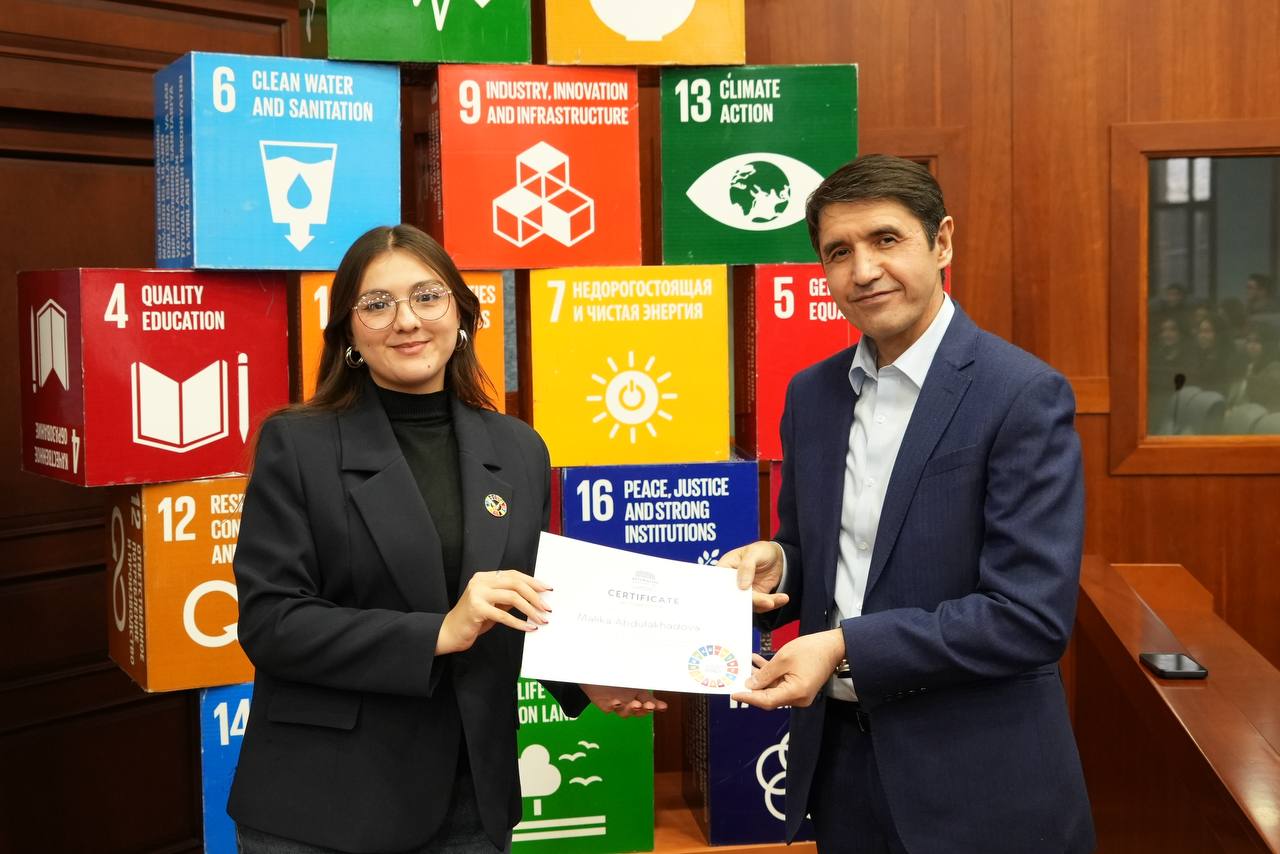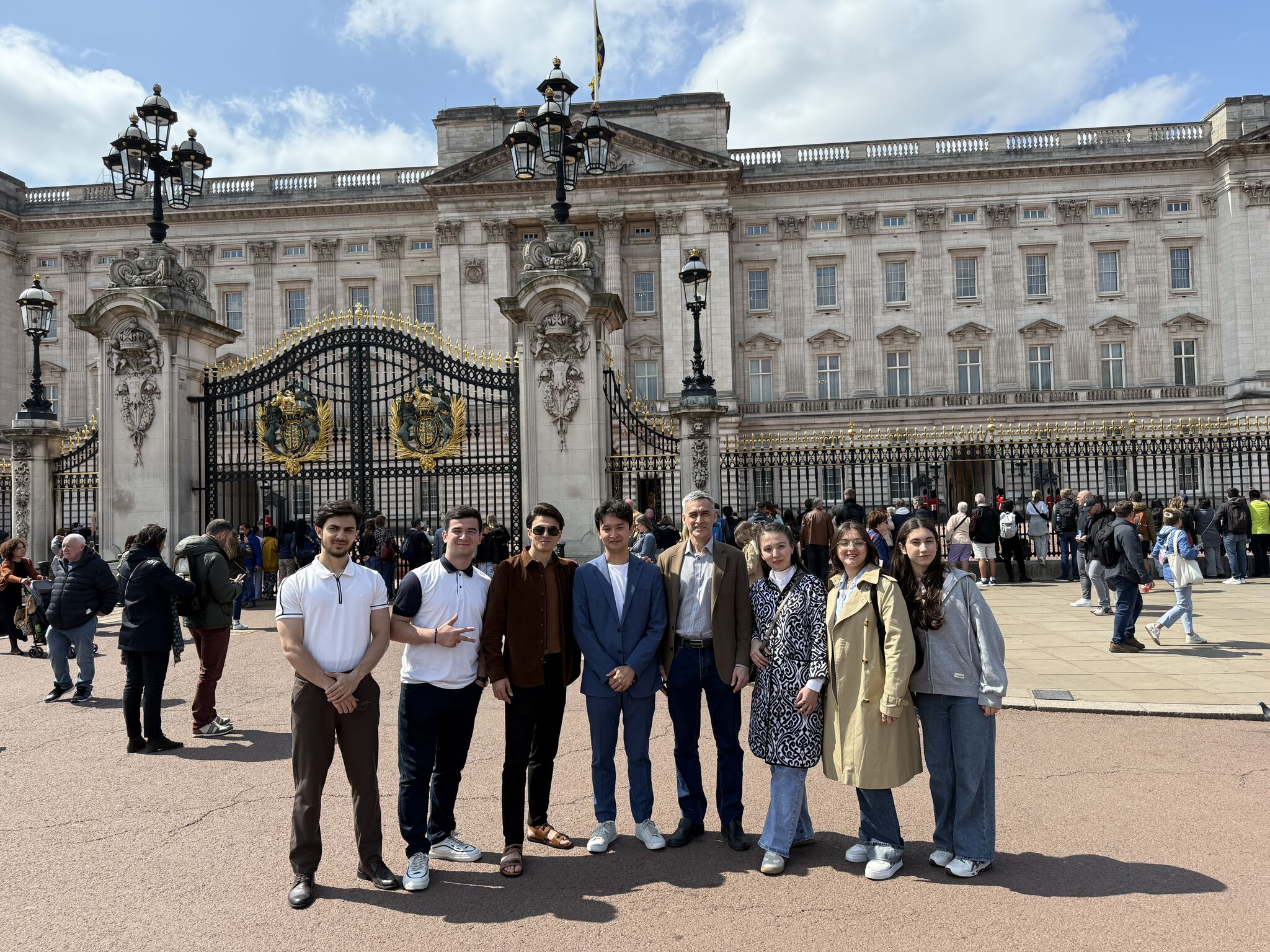Does your university as a body have a commitment to meaningful education around the SDGs across the university, that is relevant and applicable to all students?
SDGs Focus Areas
WIUT formally joined forces with UN in Uzbekistan for the Sustainable Development Goals (SDGs). The declaration solidifies the existing co-operation between the two organisations and it also shows the way of partnership between the UN and the academic sector of Uzbekistan for creating a more sustainable and equitable future for the country where no citizen is left behind.
The 17 SDGs enable us to frame and bring together our extensive collective energies towards helping our part in addressing the needs of the region’s labour markets and environmental challenges.
“WIUT adopted the SDGs in 2022, and recently turned its focus on Education for Sustainable Development (ESD). There are many examples of ESD already happening throughout WIUT curricula in one way or another, even it is not labelled or articulated as such. Through the official adoption of ESD – we must ensure:
Early in their time at WIUT, all students are introduced to the concept of holistic sustainable development using the SDGs.
All students are taught to connect their discipline to sustainable development throughout their studies.
Teaching colleagues and the University, as an ecosystem, are consistently reinforcing and building on the two points above.
Empowering students to become sustainable citizens will only happen if they are taught about sustainable development and how their professional knowledge and skills and unique personal experiences can deliver a sustainable future. We will be demonstrating an excellent standard of ESD by doing the below:
Teaching students a holistic view of sustainability
Connecting that sustainability learning to their discipline in core modules throughout their education
Reinforcing the former two points through assessment which arms them with the competencies to live and lead sustainably
Doing so in all courses across WIUT by 2025 is our goal and will mark the University out as a leader in ESD. To achieve this, an ESD Action Plan has been developed for by Academic Council in June 2024 to facilitate the rollout of ESD with targeting milestones from now through to the 2025-26 academic year.”
SDG guide WIUT
Sustainable Development Goals purposely linked with the WIUT Course Learning Outcomes, Module Learning Outcomes, Graduate Attributes, for the upcoming revalidation of Courses.
We have special guideline named SDG guide WIUT in PDF file.
PROGRESS ON EDUCATION FOR SUSTAINABLE DEVELOPMENT
WIUT recently turned its focus on Education for Sustainable Development (ESD). There are many examples of ESD already happening throughout WIUT curricula in one way or another, even it is not labelled or articulated as such. Through the official adoption of ESD – we ensure:
Early in their time at WIUT, all students are introduced to the concept of holistic sustainable development using the SDGs.
All students are taught to connect their discipline to sustainable development throughout their studies.
Teaching colleagues and the University, as an ecosystem, are consistently reinforcing and building on the two points above.
Empowering students to become sustainable citizens will only happen if they are taught about sustainable development and how their professional knowledge and skills and unique personal experiences can deliver a sustainable future. We demonstrate an excellent standard of ESD by doing the below:
Teaching students a holistic view of sustainability
Connecting that sustainability learning to their discipline in core modules throughout their education
Reinforcing the former two points through assessment which arms them with the competencies to live and lead sustainably Starting from the academic year 2024/2025, WIUT has integrated Education for Sustainable Development elements into its syllabi.
Through initiatives like the Tashkent International Model United Nations (TIMUN) and the AL WIUT MUN, students engage in simulations addressing global issues such as environmental challenges, fostering critical thinking and global citizenship. The Student Research Society Conference empowers learners to present research on Sustainable Development Goals (SDGs), promoting sustainable livelihoods and social entrepreneurship. Collaborations with UN agencies and the establishment of a UNESCO Chair on Futures Studies further integrate sustainability into education, enabling students to drive societal transformation towards a sustainable future. Additionally, WIUT's SDG course provides a comprehensive learning experience dedicated to sustainability and global development.

Interdisciplinary integration:
Stakeholder engagement:
Practical and applied focus:
Quality assurance and iterative improvement:
Scalability and replicability:

The course, which was launched in October 2024 and ran for the full academic year, was spearheaded by our Rector, Dr. Komiljon Karimov. It provided a transformative learning experience focused on sustainability and global development. Throughout the year, students engaged in thought-provoking discussions, interactive debates, and impactful projects, deepening their understanding of the United Nations Sustainable Development Goals (SDGs) and their real-world applications.
WIUT students travel to London!
Eight WIUT students and their tutor travel to London in May, 2025 to take part in the 8th Annual Democratic Education Network (DEN) International Student Conference. The trip is highly educational for our students combining field trips, Sustainable Development Goals (SDG) network meetings and participation in conversations that engage students from all over the world and provide them with the opportunity to improve their employability skills and modern knowledge.


